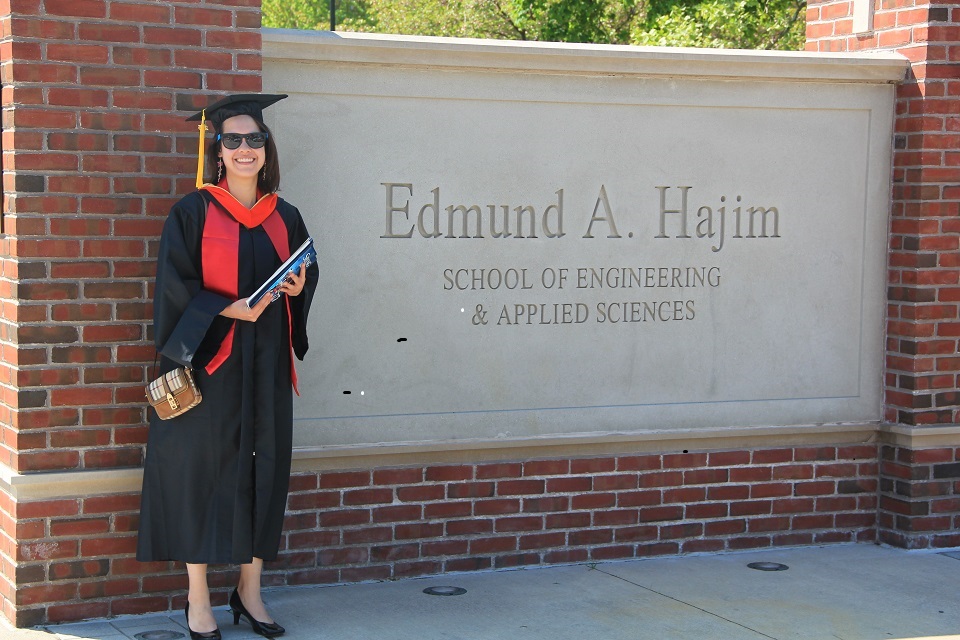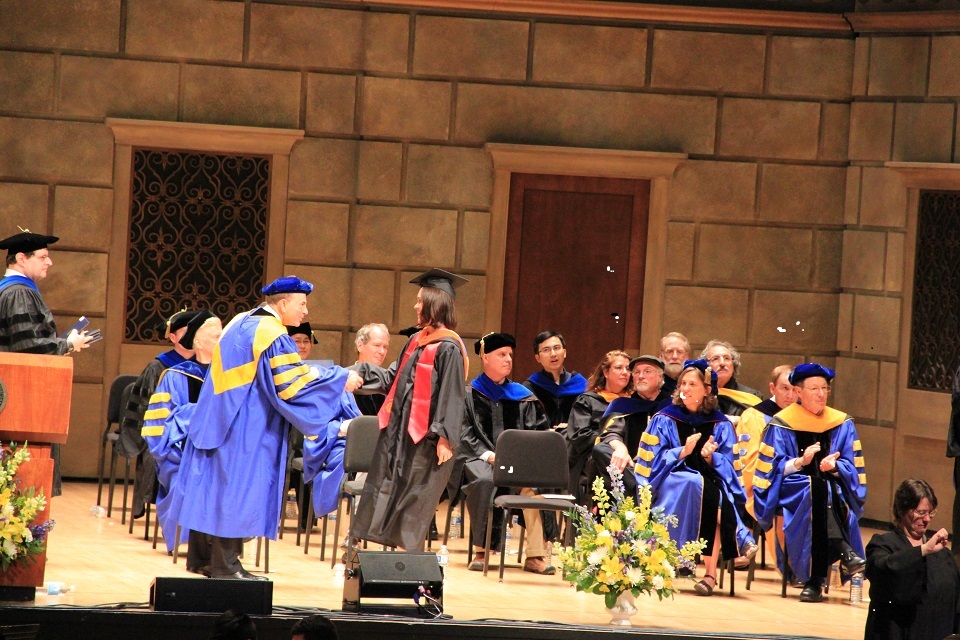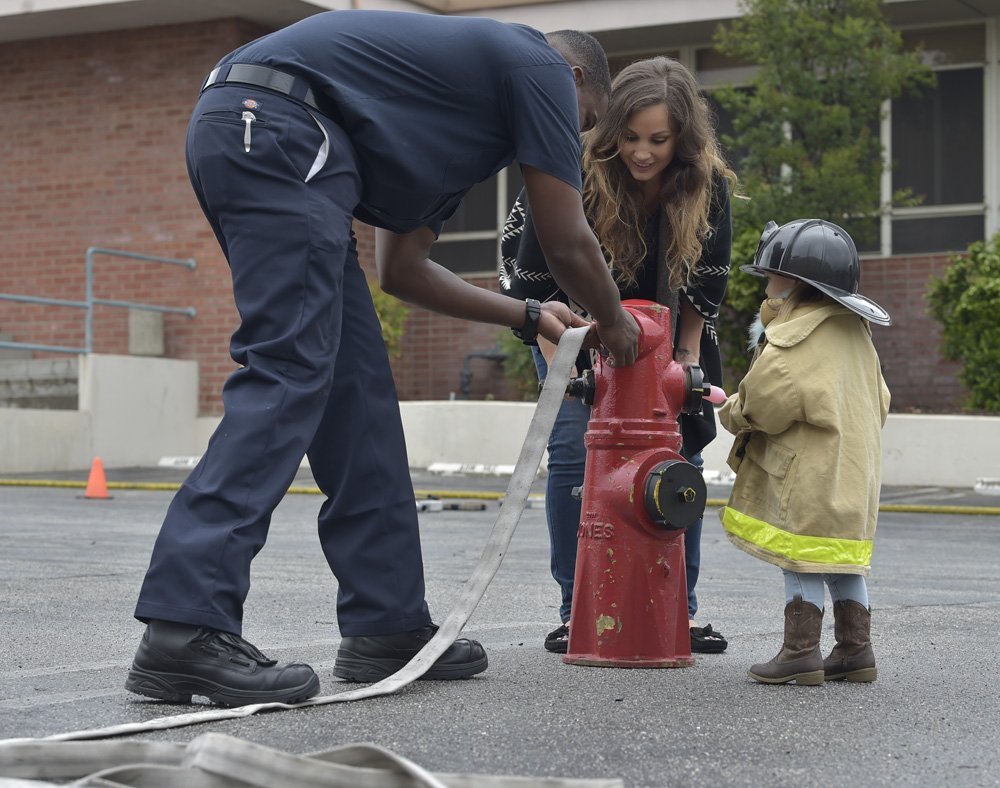By May S. Ruiz
All across the United States college students are graduating, alive with the ideals of youth and armed with a four-year degree. They are eager to make a contribution to the world using the knowledge they acquired and the skills they have developed.
The National Center for Education Statistics estimates that colleges and universities will award 1.9 million bachelor’s degrees this month. And with graduation season in progress, it is a timely opportunity to make an assessment of how much it costs to get a four-year degree, what it means to have a college education, and what good it does for everyone.
According to the College Board, during the 2017-2018 school year, in-state students paid an average of $9,970 on tuition and fees at a public university; out-of-state students paid $25,620. Students who attended private, non-profit four-year colleges and universities paid an average of $34,740.
After factoring in transportation and living expenses, the estimated amount spent by undergraduates in the 2017-2018 school year was $20,770 for in-state students at a four-year public university; $36,420 for out-of-state students at a four-year public college; and $46,950 for a private non-profit, four-year institution.
Based on those numbers, a four-year degree at a public school costs an in-state student about $83,080 while an out-of-state student pays $145,680; and a private non-profit college sets a student back approximately $187,800 for a four-year degree. These are all averages; students at Columbia University, the most expensive in the country, pay about $280,000 for their four-year degree.
Many students have to borrow money to be able to pay for college and today over 44 million Americans hold a total of $1.4 trillion in student loan, according to the College Board. And the cost of going to college rises every year.
The runaway costs of getting an undergraduate diploma, coupled with an astounding debt students take on before they even have a viable way of repaying it, have made many people question if the investment is really worth it.

In September last year, NBC News and Wall Street Journal conducted a national survey of social trends among 1,200 adults. When asked if Americans agreed that a four-year degree ‘is worth the cost because people have a better chance to get a good job and earn more money over their lifetime,’ 49 percent concurred. However, 47 percent said a degree is not worth the cost ‘because people often graduate without specific job skills and with a large amount of debt to pay off.’
Those numbers varied from the findings of a CNBC survey in June 2013 when 53 percent of Americans said a four-year degree is worth the cost, while 40 percent said it is not.
Most significantly, it’s young people who brought the numbers down for those who favor a college education. Among 18-34 year-olds, only 39 percent say a four-year college degree is worth the cost; 57 percent disagree. Just four years ago the reverse was true, with 56 percent in favor of investing in a college education, compared to 38 percent who said it wasn’t worth the price tag.
As if to underline young people’s thinking, two months ago, the Wall Street Journal published an article by Douglas Belkin about a high school student in a Pittsburgh suburb who “ … earns A’s in her honors class and scored in the 88th percentile on her college boards, but instead of going to college hopes to attend a two-year technical program that will qualify her to work as a diesel mechanic.”
Belkin writes about another student whose parents are both professionals with college degrees and assumed their 14-year old daughter would follow in their footsteps. However, her heart is set on a vocational school where she wants to study cosmetology and computer science. And while they worry that decision will be looked down upon by their well-heeled neighbors in an affluent Philadelphia area, they aren’t confident that a college degree will help their daughter get a decent job and could saddle her with debt.
The article goes on to say that there is a course correction going on in high schools “which are beginning to re-emphasize vocational education, rebranded as career and technical education.”
Recently I read an excerpt in The Atlantic, of a book written by Bryan Caplan, an Economics professor at George Mason University in Fairfax, Virginia. The author of ‘The Case Against Education,’ Caplan believes “The world might be better off without college for everyone (because) students don’t seem to be getting much out of higher education;” and “… college is a big waste of time and money.”
Caplan points out that while he embraces the ideal of transformative education and believes in the life of the mind, he is cynical about people. He’s “… cynical about ‘deciders’ – school officials who control what students study. The vast majority think they’ve done their job as long as students comply.” He’s “… cynical about teachers; the vast majority are uninspiring,” and “ … most have little firsthand knowledge of the workplace.”
Higher education, posits Caplan, “paves the way to general prosperity or social justice. But education enriches individuals much more than it enriches nations.” He adds that “ …there’s credit inflation: as the average level of education rises, you need more education to convince employers you’re worthy of any specific job;” that “a great majority of the extra education workers received was deployed not to get better jobs, but to get jobs that had recently been held by people with less education.”
As a parent who’s passionate about education and giving our children all the tools necessary for them to succeed in life, I find all these polls, stories, and trends deeply concerning. I’m sure most parents would agree with me that we should invest in the future and our children are our best hope for tomorrow. We would like to be able to leave our country’s, indeed our planet’s, future in capable hands.
To help give perspective to the debate that’s now going on, I spoke with two Pasadena-area heads of school, the vice-president of NAIS (National Association of Independent Schools), the president of NACAC (National Association of College Admissions Counselors), and a respected Southland career coach.

Dr. Robert Nafie, who has spent close to 50 years in education, is the headmaster of Clairbourn School, a pre-K to 8th grade independent school in San Gabriel. He offers this point of view, “Let me rephrase the discussion by asking the larger question – am I in favor of self-development and continuous self-improvement? The answer is yes. And what is the most efficient way to improve yourself? In the past, it was probably by being a student and being self-taught.
Another way is to be a pupil and learn from a teacher. In which case, a traditional college education or land-based college experience provides a structure and framework to help motivate someone to continue to improve.”
“To have a democratic form of government you need a citizenry that’s well-educated and well-informed,” declares Dr. Nafie. “The question then becomes ‘is a traditional college the best way of self-improvement?’ And there are two parts to this. Is a prix fixe menu of colleges and universities – one tuition fee, one location, one syllabus – practical? If you can afford it, can find financing through scholarships, grants, and financial aid then, yes, it makes perfect sense.”
“On the other hand, does it make sense for young people who leave college at the age of 22 and who may come out with a $200K debt before they really earn any kind of serious money? College education is very expensive and I, for one, don’t believe taking 15 or 20 years before getting that loan paid off is the way to offer opportunity to the next generation. With a debt at ten to twelve percent interest it would be impossible for them to retire in this environment when people make three to four percent on their investments,” Dr. Nafie says.
“When I was growing up there were more layers among the privileged and working class,” continues Dr. Nafie. “However, there’s more appreciation today for people who pursue other lines of work they don’t necessarily go to college for. There are people who have skills and talents that can be cultivated. The greater model is not where you went to college but how have you improved your life? What did you know at one time and are you moving forward in your search for knowledge and information?
There’s been a recent development that hearkens back to earlier times in artisanal work and I’m a big proponent of it. For instance, more than we might have earlier, we value people who restore historical buildings to their original luster. Today we respect excellent carpenters and other tradespeople. I think there’s an avenue for creative people who work with their hands. There are more opportunities for areas of work we didn’t consider before.”
Dr. Nafie sums up, “So to get back to the original question, if you could afford to get a college education without suffocating debt, then you should do it because all avenues are open to you. It offers the best job opportunities and advancement. The second approach is to be a student and self-study, and know the top people in every walk of life; know how thoughts cross fields instead of just having one chimney of knowledge. The third option is to be a craftsman and learn from a master in the artisan tradition.”
Peter Bachmann, head of Flintridge Preparatory School, a 7th to 12th grade institution in La Canada-Flintridge, argues that a college education is worth the investment. He states, “Firstly, we don’t know what the economy will look like over the next 50 years of the graduate’s work. This will more likely change multiple times and will probably involve a number of job changes. College teaches students adaptability, creativity, and critical thinking – all of which someone needs to prepare for what lies ahead.”
“Secondly, there’s the unexamined assumption that the only reason to go to college is to get a job,” states Bachmann. “While that is clearly a major motivation, that is a narrow and potentially impractical assumption. To live in an American democracy, we have to be collaborators both in the workplace and in the civic society. College can help you analyze political issues, cultivate civic responsibility, and participate in your community. So there is a civic purpose to college.”
“And thirdly, college helps you grow as a person, develop passions and ideas. It can help you think critically and creatively about all aspects of your life,” Bachmann adds. “I think college done well has very broad purposes, with broad pay-offs.”
“Additionally, depending on what field you want to go into, college may be extremely important,” stresses Bachmann. “Obviously, if you want to be a doctor, an engineer, or a lawyer, you need college and probably graduate degrees. I am a big ‘follow your passion’ advocate for college undergraduates.”
“You should not opt out of college because you don’t want to have student loans, but look for ways to fund your college education,” Bachmann asserts. “Find colleges offering merit scholarships; apply for financial aid and grants. There are public universities which provide excellent teaching. There are also private institutions that are not necessarily the most highly selective schools and charge less. These schools can often produce college-educated kids who are successful in the marketplace and are civic leaders, as well.”

Myra McGovern, vice-president of NAIS and speaking on its behalf, voices yet another viewpoint, “What we’re seeing is that the nature of both work and school is changing and what families are looking for in K-12 instruction or in higher education is shifting.
“There are many different reasons why families seek education. For some, it’s to get into competitive colleges and universities and to succeed academically. For other families, a school is a place to learn community values or where to really nurture the talents of an individual.
“At the same time we’re seeing a lot of students who are successful academically and go to college, but don’t have the social and emotional skills, and the resiliency necessary to function. So we’re urging schools to think not only how to help students get the best SAT scores but to prepare them for lifelong success and well-being so they are able to consider different options.”
“One of the things our schools are good at is preparing them for jobs that don’t even exist yet,” McGovern explains. “If we don’t know what the jobs of the future look like, how do we prepare students so that they have the flexibility and abilities that will transmit to many different fields in the future – particularly in thinking through programs for innovation and design, in areas like coding or decoding that may, in fact, not be ‘THE’ thing needed when they become adults.
“There isn’t a definitive answer to whether a four-year degree is worth it or if isn’t; it really depends on the student’s specific goals. And that’s the one thing independent schools specialize in – finding out what students’ aspirations are and helping them get there,” McGovern concludes.
David Burge, President of NACAC is, ironically, the Vice-President for Enrollment Management at George Mason University where Caplan teaches, and he argues ardently for a college education.
“First of all, there’s good documentation and research that would suggest that if you’re someone who has low or moderate income, your lifetime earnings are more directly connected to your ability to earn a degree. And, to some extent, this noise about college not being worth it is being driven by people who already have a degree and strong earning potential. Americans from a predominantly low income background don’t have the same access to the same capital, opportunities, and networks so, for them, college is very important,” maintains Burge.
“Second of all, the research is pretty clear about lifetime earning potential,” Burge continues. “Even when you look at various disciplines, Liberal Arts majors, like their counterparts in Engineering, are getting a greater return on investment that far exceeds anything they could get, say in the stock market.”
“Generally speaking, even after students are out of college five or ten years, they find that the earnings gap between those who attended college and those who didn’t tends to widen,” adds Burge. “When you look back at the great recession, a lot of the jobs that were lost were held by those without college degrees. And a disproportionate number of jobs that have been created during the economic recovery required a college degree.”
“There’s also societal good at play,” Burge points out. “The College Board has put out a very good research that college graduates are more likely to have employer-provided pensions and healthcare insurance; they’re more likely to be physically active, less likely to smoke, more likely to volunteer and vote. That’s not to say that those who didn’t go to college are somehow deficient; there are a lot of people without a college degree who have very successful lives.
“Furthermore, it doesn’t mean that college is a golden ticket, because it’s not. People who go to college still have to have good ideas and still have to do good work. It’s certainly not a guarantee, nor is it completely necessary, but it is definitely going to be the best accelerant that people can have to get to their dreams.”
“We, at NACAC, believe that school counselors should not tell students they shouldn’t have debt but counsel them on what is the right amount of debt relative to what they can expect to earn from their degree. Additionally, there are alternative paths to degrees, like community colleges, on your way to a four-year degree that can still produce the same outcome not only in terms of earnings but also for happiness and success,” concludes Burge.
Going to college isn’t the end-all. In fact, graduation day marks the beginning of the next challenge.
Cynthia Shapiro is a Southern California career coach and employee advocate who has written two internationally bestselling books. A television expert, who has done a lot of work with ABC News – ABC World Tonight, Good Morning America, Nightline, and 20/20 – and CNN, she helps graduates find jobs.
Shapiro declares, “Universities are self-perpetuating institutions and are disseminating the idea that all you need is this degree and doors will open, you’ll be CEO in ten minutes. While a college or master’s degree does open doors, it’s something to add to your tool box to give you a leg up. You need to get out there and make it happen.
The problem is that while universities have career centers, they don’t teach students how to write a good resume, how to interact in the public world, how to behave with a boss, what are the most important things to do to find and keep a job.”

“There’s a lot of competition – not just for top jobs, but for any job,” Shapiro pronounces. “And, yes, the job market is shrinking for a variety of reasons, including automation, job consolidation, outsourcing, international business. But there are always jobs for people with the right approach.
“What companies hire for is actually not skills and talent; they know they can teach that. What they hire for is attitude and passion; passion gets the job every time. Employers are looking for positivity, confidence but not arrogance; a willingness to get in there, to roll up their sleeves and get the work done and learn, and be a part of the team.
“That said, there are companies who will discriminate if you don’t have a degree and that’s another reason why you should have one. Some jobs even require a Master’s degree and those doors will be closed to you if you don’t have it.”
And because of competition, employers now are looking for more components on applicants’ resumes. Shapiro discloses, “It used to be that a four-year, or six-year, or eight-year degree was enough to get you hired. Companies like to see actual work experience so you have to get an internship to show you’ve been successful in a work setting.
Applicants who’ve had internships in their chosen field are hired faster than all others. But if you can’t find an internship in your desired career, find any job. Even working at Wendy’s at night to help pay for your college education shows you’re responsible, a go-getter, and you’ve got work ethic. Make sure your manager likes you so you can ask for a good reference.”
Graduates who don’t have an internship to put on their resume could include school projects. Shapiro says, “Showcase the things you’ve done in college as work experience. For example, a marketing project where you went to an actual business; or a business plan you wrote for a dry cleaner’s; or being treasurer of your college sorority. It’s obviously collegial experience but it’s what we call transferable skills because they show what you’re capable of.”
“What you need to do is get your foot in the door. Call up the company you really want to work for and ask if you can work there for free; companies don’t usually turn down free labor. Then show them how good you are, how you can shine, that you’re better than everyone else. I can guarantee you they’re going to find a position for you,” concludes Shapiro.
As voiced by my respondents, there is much evidence that a college degree is a means to an end that is worth investing in. However, happiness and success aren’t predicated upon acquiring one. There are other ways of getting an education and making a living. And a fulfilling and satisfying life isn’t measured by one’s job title or how much wealth one has accumulated.
Our responsibility as parents and educators is to guide our children to make education choices based on their dreams and passions because it is by following those, and succeeding in them, that they can do the most good for themselves and, hopefully, for the world.







